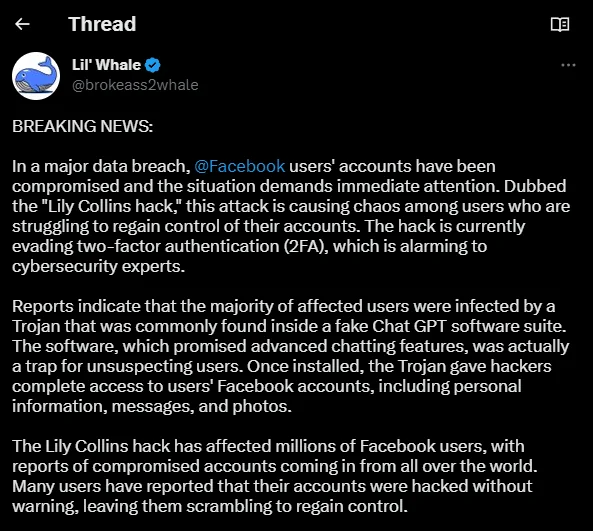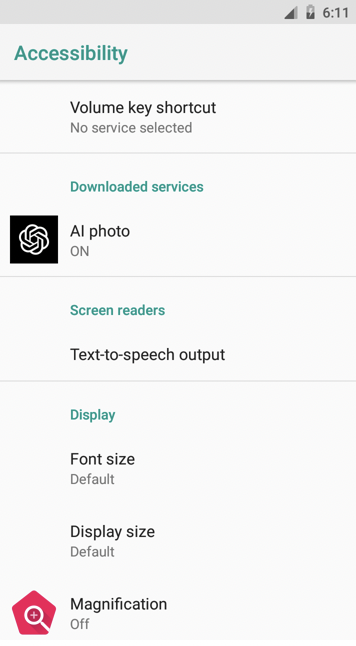ChatGPT, an AI-powered chatbot, has gained immense popularity since its launch. Its ability to simulate human-like conversations and provide personalized responses to users’ queries has quickly become a go-to tool for businesses and individuals alike. However, this popularity has also attracted cybercriminals, who are now taking advantage of the situation by creating fake ChatGPT apps and publishing them on the App Store.
These fake ChatGPT apps may appear legitimate, but they are dangerous for your phone. Once you download them, they can install malware or spyware on your device, collect your private data, and track your browsing activity. This can result in financial loss, identity theft, and other serious issues.
To protect yourself from these fake ChatGPT apps, knowing how to spot them on the App Store is essential.


How to identify a fake ChatGPT app on the App Store?
Firstly, it’s important to note that OpenAI currently develops no official iOS or Android app for ChatGPT. Any app claiming to be the official ChatGPT app should be treated cautiously. To use ChatGPT on your phone, you can navigate to the official website via your preferred browser. However, if you do choose to download an app claiming to be ChatGPT, here are some tips to help you spot a fake:
Check the developer’s name: The most reliable way to identify a fake app is to check the name of its developer. If the app claiming to be ChatGPT has a different developer’s name, it is likely to be a fraudulent version.
Look for app reviews: To spot a fake app on the App Store quickly, refer to the reviews section and see what other users think. Check whether real people did the reviews, as fake reviews can be deceiving. Negative reviews indicate that something is wrong with the app.
Review app permissions: Take a closer look at the app’s permissions. If an app requests more than necessary, it could be a sign that it’s not legitimate.
Check the logo and description: Check the logo, graphics, and description of the service, as fake apps often use outdated logos, poor-quality graphics, and grammatical errors in descriptions.
Examine the number of downloads: Generally, apps with many downloads are more reliable, as they have been verified and tested by other users. Fake chatbot apps typically have lower download numbers than legitimate ones.
Verify app versions and authenticity: Always ensure that the app you are downloading is the latest version and has been updated regularly by its developer.
Remember, fake ChatGPT apps can put your device’s security at risk and compromise your privacy. It’s important to be aware of such fraudulent apps on the App Store and take the necessary precautions when downloading any app.


Different fake ChatGPT apps circulating around
Have you come across the hashtag #LilyCollinsHack on social media recently? This trend resulted from a hack on Facebook accounts where hackers changed the account names and profile pictures to resemble that of actress Lily Collins’s account. Over 4 million accounts have been affected by this attack, carried out through fake ChatGPT apps disguised as Chrome extensions. It is important to note that using fake ChatGPT apps to steal personal credentials is a known tactic cybercriminals use, and the recent Lily Collins hack is just one example.
There have also been discovered several suspicious ChatGPT apps, some of which are malicious Trojan viruses, while others are classified as potentially unwanted apps (PUAs). PUAs are not considered malware but can still pose lower security and privacy risks, such as causing your device’s operating system to slow down or displaying unexpected and intrusive ads. On the other hand, Trojan apps can install malicious software onto your device and even encrypt your data or device.
ChatGPT Scams and Trojan Apps
The ChatGPT trojan apps that have been identified are not new and were previously disguised as YouTube and Netflix “premium” apps. The ChatGPT trojan app discreetly subscribes the target to various premium services through SMS billing fraud. The “AI photo” trojan app belongs to the Spynote malware, which can be used to steal files, SMS messages, call records, and contact lists from the target device.
Researchers have discovered multiple suspicious ChatGPT websites with fake URLs that offer downloads of ChatGPT, which is solely browser-based. These malicious websites aim to infect your computer with malware. Others are fake payment pages where you can supposedly upgrade to ChatGPT Plus but may lose your money and/or compromise your data. It is imperative to avoid downloading these fake and harmful ChatGPT apps and websites. Hence, it is best to stick to the official website of OpenAI, which is https://openai.com/blog/chatgpt.



